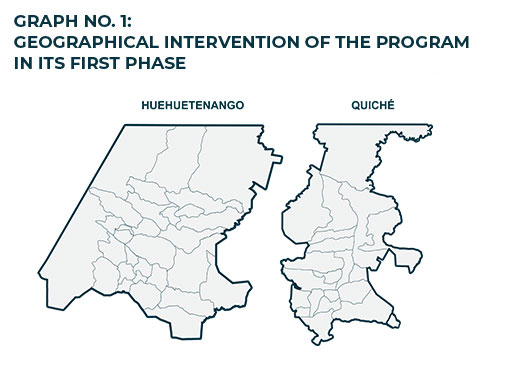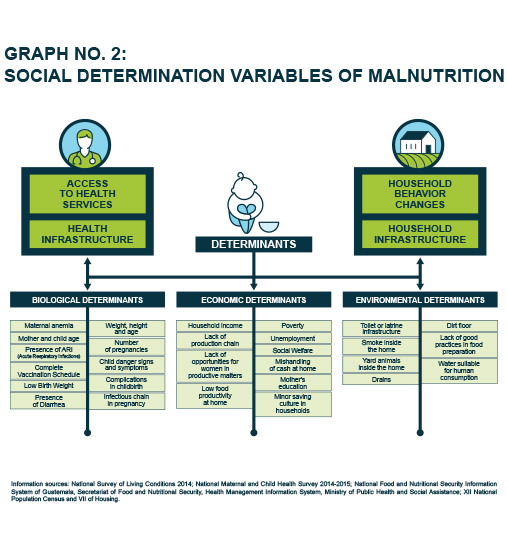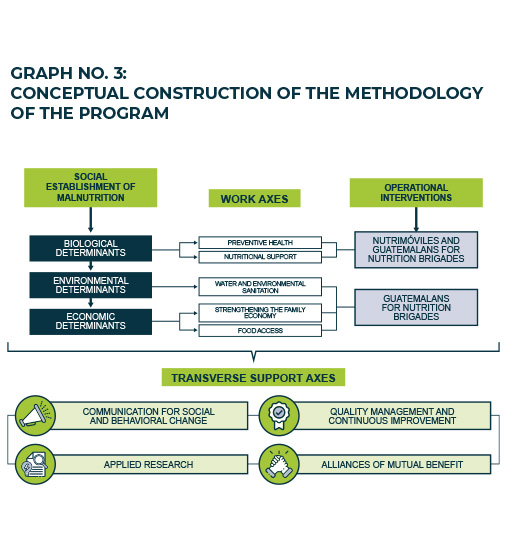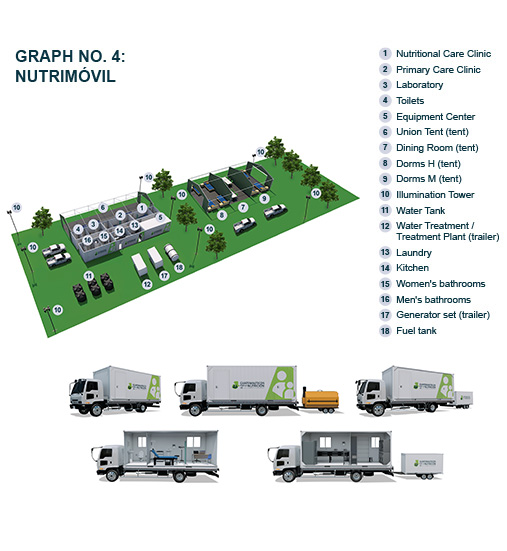
In its first phase, Guatemalans for Nutrition has proposed to center efforts to break the cycle of malnutrition in selected communities in the most affected municipalities of the departments of Huehuetenango and Quiché.
The technical analysis for defining the areas of intervention was based on the multivariate study of a series of data that included the following variables: incidence and lethality due to acute malnutrition, prevalence of chronic malnutrition, food security index, morbidity-mortality analysis with epidemiological data of the Directorates of Health Areas in the target population, total poverty, environmental sanitation conditions, impact of remittances in families and the migratory flow of returnees. The results showed that, in both Huehuetenango and Quiché, malnutrition is a problem that requires immediate attention.
Guatemalans for Nutrition defined a five-year work plan whose geographical scope is limited to the departments of Huehuetenango and Quiché:

The objective of the intervention will be to eliminate the causes that cause malnutrition by transforming its biological, economic and environmental determinants.
The goal for the first year is to serve the first micro region, directly benefiting 1,500 families. Additionally, 1,500 more families will be able to receive benefits such as growth monitoring, training in the correct preparation of nutritious recipes, taking into account cultural relevance and that they are locally accepted by the community; primary health care and productive agricultural projects that promote entrepreneurship and business plans.
The main goals for the first year are the following:
The combination of biological, economic and environmental determinants causes the high prevalence of chronic malnutrition in Huehuetenango and Quiché and creates a vicious circle.
Guatemalans for Nutrition bases its methodology on the concept of "Breaking the cycle of malnutrition" and, instead, building a virtuous cycle of good practices that favor the development and well-being of the people intervened, their families and the community they belong to by transforming those social determinants of malnutrition.

Castillo Hermanos, through the Guatemalans for Nutrition team, created a care model that contemplates each of the social determinants that lead to the causes of malnutrition and, with this, gave life to its methodology: "A call to action: let's break the cycle of malnutrition!”
The methodology establishes five lines of work which, when addressed, cause the gradual breaking of the cycle of prevalence of malnutrition, promoting the transformation of biological, economic and environmental determinants. For these five lines of work, two operational interventions were defined.
The work methodology also defines four thrusts of transversal support to the main thrusts that aim to generate behavioral changes in households that give sustainability to nutritional recovery, generate technical evidence for the definition of better interventions and alliances at a local level that strengthen program intervention.

The Nutrimóviles Camp consists of a series of modular and mobile infrastructures in which nutritional and primary health care will be provided to pregnant women, women of childbearing age and children under five years of age. It will have operational autonomy and will be equipped with technology that will favor speed of care. The Nutrimobile Camp will be the base of operations for this replicable model program.
The Nutrimóviles Camp will be supported by complementary extramural work, which consists of home visits for weight and height monitoring, as well as training workshops. These actions will be carried out by the Guatemalans for Nutrition brigades, made up of the communities, so that this intervention will also generate sources of local employment and guarantee the sustainability of the program by promoting local and community skills that can be replicated.

The methodology will be complemented by the development and dissemination of communication campaigns for social and behavioral change; operational research, the implementation of actions based on evidence and the establishment of alliances for the benefit of the population attended.
The services that will be provided to pregnant women, newborns, children under the age of 5 and women of childbearing age, in a complementary manner between Nutrimóvil and the Guatemalans for Nutrition Brigades, are:
At the same time, the Guatemalans for Nutrition team, will work through the thrusts of local economic growth and food access in six operational actions to fulfill the objective of generating local economic growth and seek that small producers can organize themselves, strengthen their productive chains and become providers of parent organizations that buy food through the school feeding program